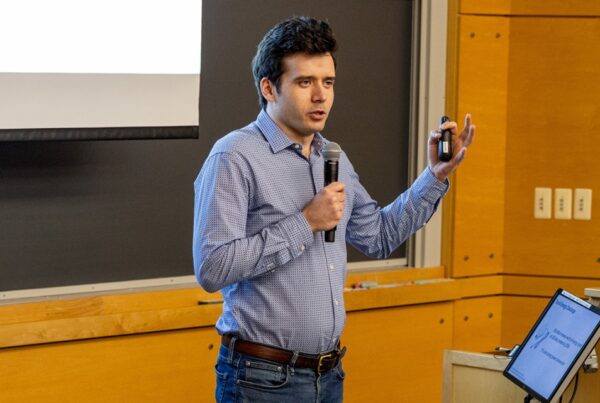Three new research projects — a treatment for childhood ear infections, an AI-powered tool to link databases and a novel gene editing method for therapeutics — will receive funding and training to transform university research into new ventures and products that can benefit society.
These projects and the Cornell inventors behind them were selected for the Ignite Fellow for New Ventures program, which helps transform promising technologies into startups that can benefit society. Since its launch in 2022, the program has supported 15 research-based projects and graduated six startups. More projects are expected to graduate to form new ventures in the coming months.
The program is managed by Cornell’s Center for Technology Licensing (CTL), which supports researchers and innovators in translating discoveries into startups. “Cornell researchers are dedicated to tackling critical problems for the greater good,” said Alice Li, executive director at CTL. “This program accelerates their way into society where they can truly make a difference.”
The 2025 Ignite Fellows and their projects include:
Middle Ear Immune Therapy
Fellow: Wenjing Tang, Postdoctoral Associate
Faculty: Rong Yang, Associate Professor at R.F. Smith School of Chemical and Biomolecular Engineering
Middle ear infections are one of the most common reasons children are prescribed antibiotics, but standard oral treatments can cause side effects and contribute to antibiotic resistance. This project is developing a new method for delivering antibiotics directly and non-invasively into the middle ear, using specially designed particles to target the infection site in a single dosage. This approach aims for safer, more effective treatment with fewer systemic side effects and no negative impact on auditory function. Yang received Cornell’s Ignite Innovation Acceleration funding in 2024, which helped advance the technology’s early-stage research toward commercialization.
SwellDB
Fellow: Victor Giannakouris Salalidis, Ph.D. student
Faculty: Immanuel Trummer, Associate Professor in the Department of Computer Science
In large organizations, analysts often struggle to analyze data that is scattered across different formats — from structured databases to raw files, documents or webpages. Identifying relevant sources, integrating them and extracting insights can be a time consuming and technically complex process. SwellDB, a generative AI-powered data system, addresses this challenge by using large language models to simplify the way users interact with disparate data sources. The system allows users to pose natural language questions and, in response, autonomously finds, retrieves, and organizes relevant data across formats and locations. By making data analysis more intuitive and accessible, SwellDB supports faster and more confident decision-making in fields ranging from healthcare to business intelligence.
RNA-Guided Transposons
Fellow: Robert Wingo, Ph.D. student
Faculty: Joseph Peters, Department Chair and Professor of Microbiology at the College of Agriculture and Life Sciences (CALS)
Precise DNA editing is critical for developing new therapies and improving agriculture. However, most current gene-editing tools, such as CRISPR-Cas9, cut both strands of DNA, which can lead to unintended mutations or cell damage. This team is developing a safe and accurate tool inspired by natural bacterial systems, called transposons, capable of delivering new, complex genes to precise locations without cutting the DNA in two. The technology could lead to more effective treatments for genetic diseases, improved cancer therapies, and advancements in biotechnology and agriculture. Peters also received Ignite Innovation Acceleration funds in 2024 and 2025, which helped the team pursue venture creation.
This story was originally published in the Cornell Chronicle.









